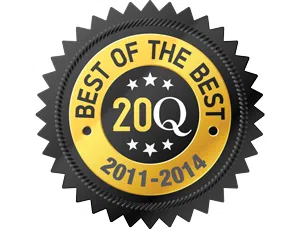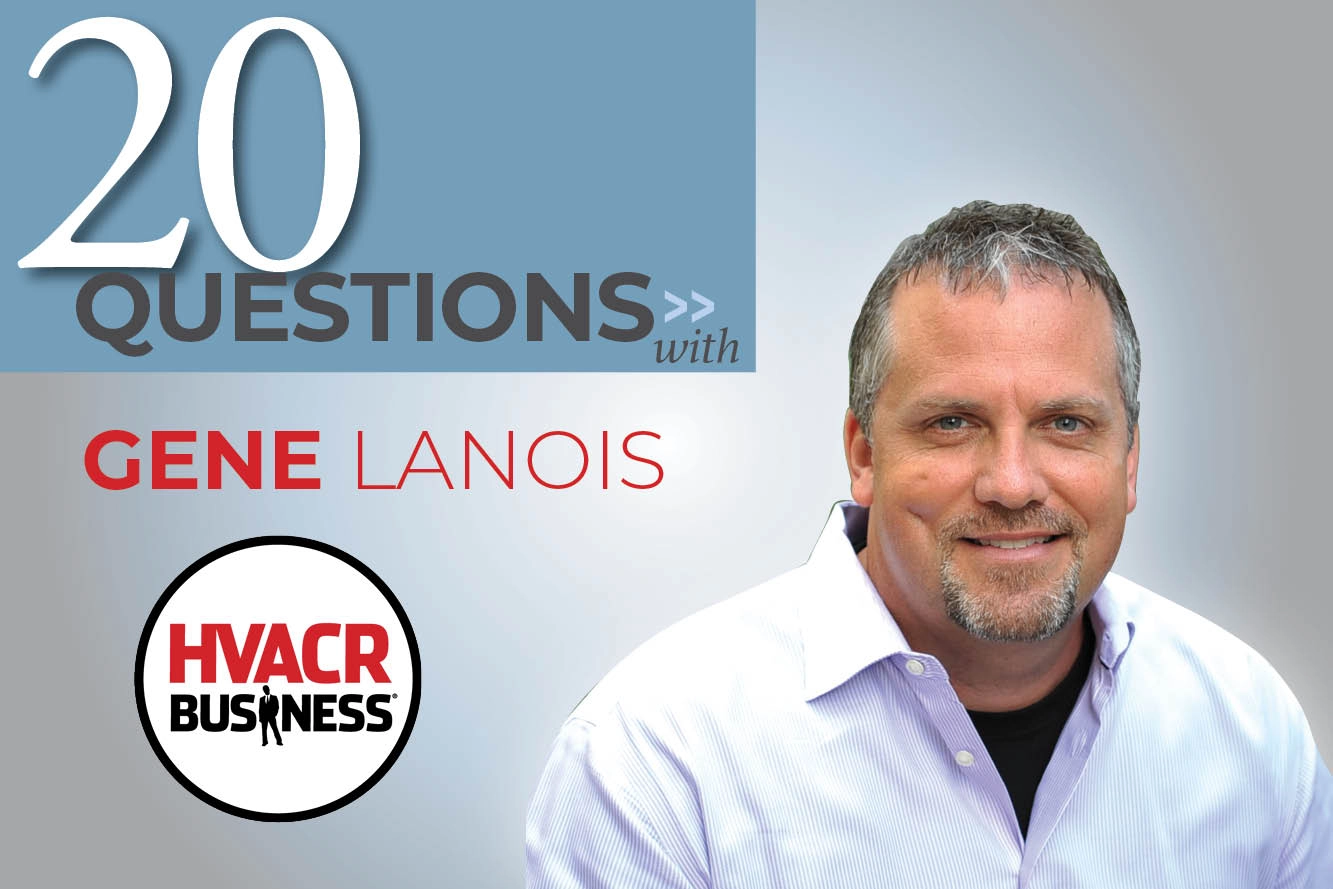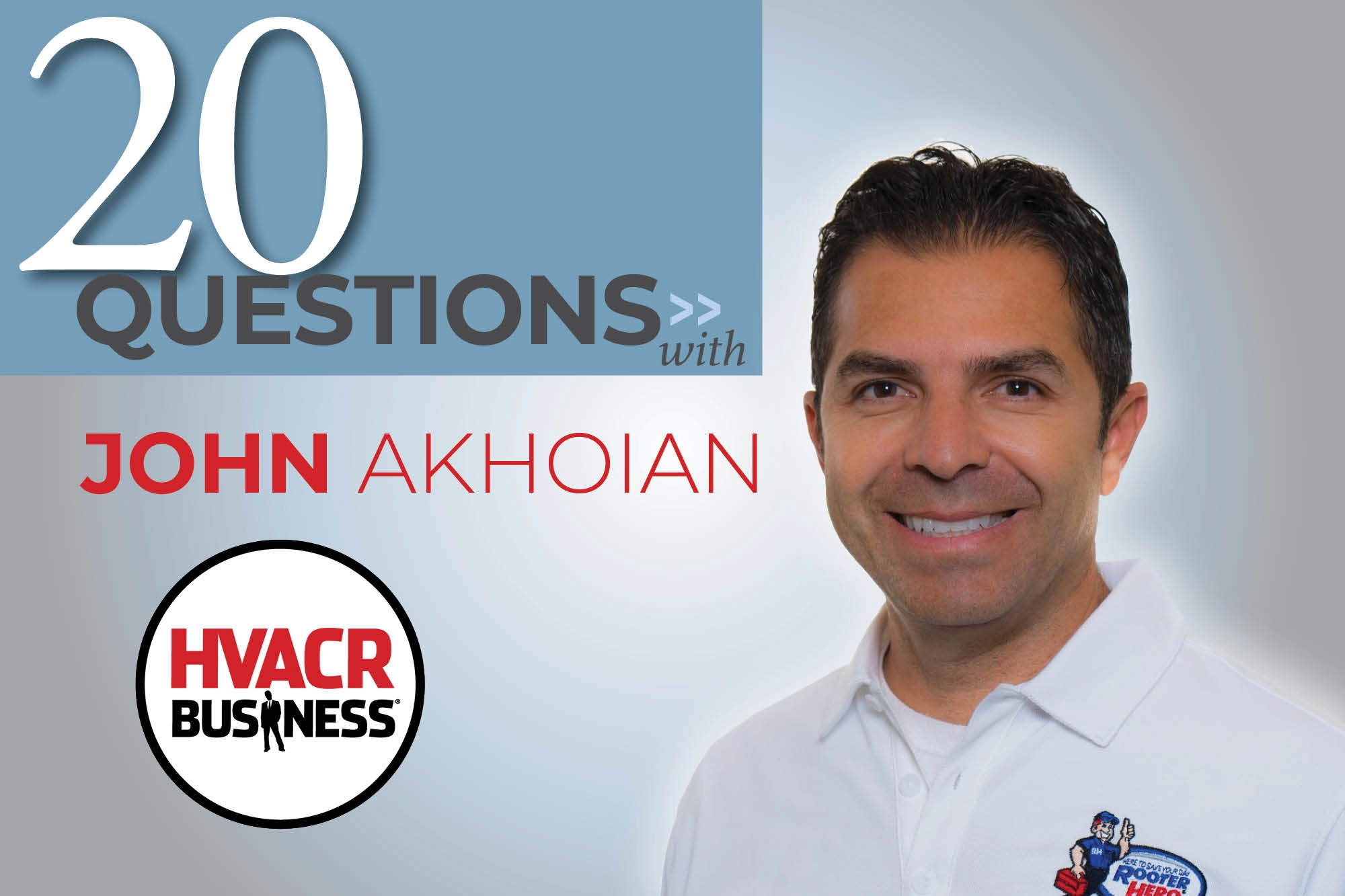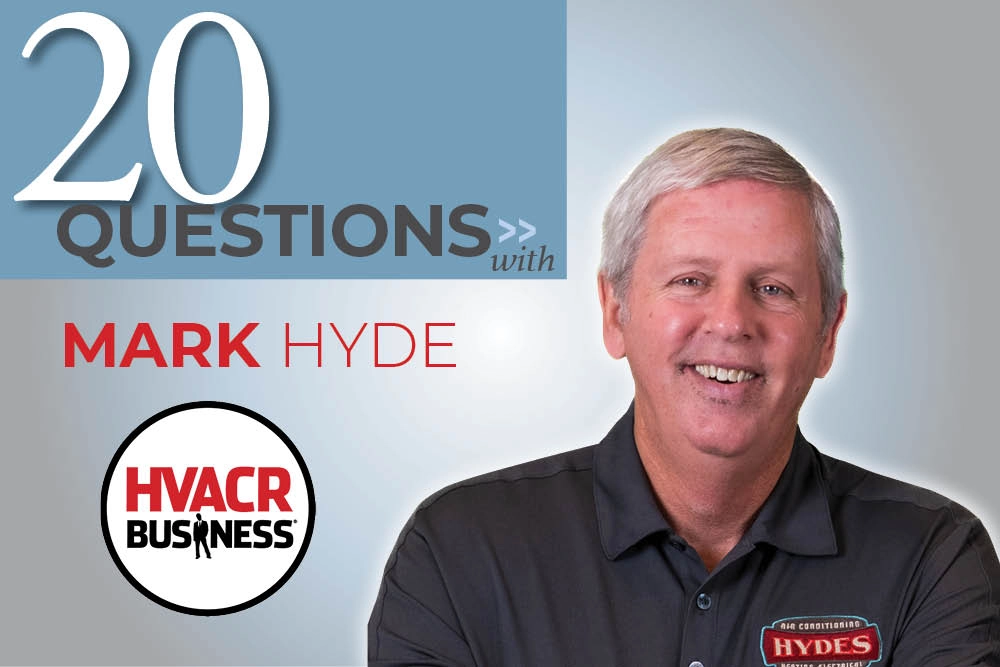Since we last ran a Best of 20 Questions four years ago, Publisher Terry Tanker has continued to interview many of the top HVACR contractors, distributors, suppliers and consultants, as well as several prominent people in business and leadership.
Here are 20 of our favorite questions — and answers — from the past four years.
Bill Gardiner, chairman of Gardiner Trane (July 2012)
1. How do you recruit new employees?
We’ve received recognition as one of the best companies to work for in the region, which has helped tremendously. But we actively develop associates from within: We hire engineering students and technicians as summer associates, and almost every one of them comes back to us after graduation.
Jaime V. DiDomenico, president of N&M Cool Today (Jan. 2011)
2. How do you keep employees motivated and focused?
We meet consistently and drive home core values and our mission with them. We stress the rewards of having a customer ecstatic about our products and services. We promote our own values with new employees, and we celebrate successes, which is very important.
Chris Baker, president and COO of Virginia Air Distributor (Jan. 2013)
3. What is the best business advice you’ve received, and who gave it to you?
I’m not sure from whom this advice or expression came, but the old adage “Slow to Hire, Quick to Fire” is my favorite. With people being our most important asset it’s critical for our business to hire the right individuals. Making a mistake is costly on a number of different levels.
Joe Timo, owner of Timo’s Air Conditioning & Heating (Sep. 2012)
4. How do you keep service personnel motivated when they’re working nonstop?
By being truly appreciative and thankful for their hard work and expressing it often.
Ray Isaac, president of Isaac Heating & Air Conditioning (Apr. 2013)
5. How do you get everyone to buy into core values?
First, we have something we call “Rank Ordered Priorities,” which are safety, employee, client, company. We put the employee first, before the client and the company. If you don’t have a happy and loyal employee – “a raving fan employee,” you will rarely have a happy and loyal client, much less a raving fan client.
Michael Feurer, co-founder of Office Max (Nov. 2011)
6. What’s the best way to motivate co-workers?
Make them part of the process. History shows us the best leaders pick a common enemy. Get them to focus on a common enemy or common cause. Get everyone focused.
Tom Edwards, president of Ruskin Air and Sound Control (July 2013)
7. How do you mentor others and spend enough time with your direct reports?
Monday morning staff meetings via conference call are a great tool. Each participant discusses his or her functional area. We discuss marketing, operations, finance, HR, examine plans, share ideas and best practices. The whole idea is to knock down silos to make sure there is better awareness around the company.
Steven Blue, CEO of Miller Ingenuity (May 2014)
8. How do toxic employees get into organizations?
First know this: you have them. They are wrecking your company as you read this. As the CEO, you have allowed this condition to exist. You have allowed your HR people to bamboozle you into instituting 12-step sensitivity training programs. If you are a large mechanical company, you’ve allowed your union negotiations to produce agreements that tolerate toxic employees. Only you, as CEO, can fix it.
Jerry Weiss, executive director of HVAC Excellence (Mar. 2011)
9. What can contractors do to support education in our industry?
They can contact existing schools and offer to be a member of their advisory committees. These committees have a lot of influence on the practical outcomes of programs. Secondly, if you don’t offer continuous and specialized training to your employees — start doing it.
Kenny Chapman, owner of Peterson Plumbing (April 2011)
10. Your success has enabled you to coach and train others. What’s the largest shortcoming you see?
In this industry, we’re taught as the owners that we have all the answers, and our identity is tied to that. In reality, quality people make quality decisions based on information sharing. Training, empowering, and holding them accountable is much more powerful.
Ray Grimm, owner of A.W.E. Air. Water. Energy (July 2011)
11. What advice do you have for contractors who want to grow, but don’t know where to start?
If you want to grow, you have to take calculated risks that are backed up with fresh ideas that make good business sense, and the courage to believe in your mission. Do your research and don’t be reactive.
Steve Saunders, president of Tempo Mechanical (Nov. 2012)
12. What is your business philosophy?
We summarize our philosophy in an equation: (EO + SL + PE) x (ME + B2) x (EF + E2) = P3 or (Employee Ownership + Servant Leadership + Performance Excellence) x (More Efficient + Bigger and Better) x (Environmentally Friendly and Energy Efficient) = Deliver things that are good for People, Profits and Planet.
Ron Smith, contractor, consultant and advisor to HVACR Business (April 2012)
13. What are three common mistakes you always fix as a consultant?
The development and implementation of a company-wide training program; correcting the pricing strategy for each product and service; and proper staffing with the right coworkers.
Peter Hungate, owner of Pacific Air Systems (Aug. 2013)
14. What is your management philosophy?
I’m a process manager. I have high standards, and our team doesn’t always meet those standards. Neither do I. Processes establish performance standards, and that’s why I’m always eager to improve them. They just make us better.
Tim Sanders, CEO of Net Minds (Nov. 2014)
15. Is there a stigma around being creative in business?
The idea of creative thinking terrifies most business owners. Many think creative thinking means employees are scheming and trying to put them out of business. You can’t have a company where creative thinking is encouraged and the CEO is the bottleneck.
Lee Rosenberg, chairman of Rosenberg Indoor Comfort (Sep. 2013)
16. Could you share a good customer service story that has paid dividends?
Many years ago, I met a customer who needed a simple bathroom supply outlet installed. He was impressed with our company and asked if we provided commercial services. Since that time, we’ve done about a half a million dollars of business at his firm.
Wendy Staso, CEO of Huckestein Mechanical Services (Jan. 2014)
17. Could you tell me more about Sustainable System Delivery?
SSD is derived from the Integrated Project Delivery construction model where everyone works together to deliver a system that is responsive to owner and tenant needs. Mechanical systems account for about 60% of the energy spent in a facility, and they can play a substantial role in creating sustainable buildings. We believe sustainability is achieved by continually assessing the system to identify inadequacies through maintenance, which optimizes efficiency and equipment longevity.
Anne Beiler, founder of Auntie Anne’s Hand Rolled Soft Pretzels (Oct. 2014)
18. What are your best leadership skills?
My leadership skills are centered on three small Ps — great purpose, great product and great people. Together those would lead us to the large P, which is profi t. Too often we want profi t and we cut back on people, product and purpose. In reality, you have to magnify those and eventually you will make a profit.
Tom Huntington, president and CEO of Waterfurnace (May 2012)
19. What is the best business lesson you’ve learned and how has it served you over the years?
Address a problem head on and solve it quickly. Get it behind you. This has saved countless hours of time and energy.
John Hazen White, Jr., CEO of Taco (June 2012)
20. When you became CEO, what lesson did you learn the hard way?
I learned this lesson over time as opposed to the “hard way,” and that lesson is, to be an effective CEO, you have to understand people, you have to listen to them, you have to bring them into your life. Everybody has a story, so get interested, listen to people, tap into that in a good way. It gives you insight into what makes them tick.






